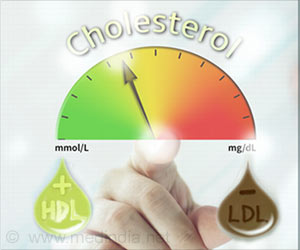Lower LDL-C target can safely be considered to further reduce the risk of recurrent cardiovascular events in high risk patients

TOP INSIGHT
Evolocumab lowered LDL-C levels to a median of 0.8 mmol/L and significantly reduced the risk of cardiovascular events at a median follow-up of 2.2 years
The FOURIER trial randomised patients with stable atherosclerotic cardiovascular disease and treated with background statin therapy, to either placebo or evolocumab - a proprotein convertase subtilisin-kexin type 9 (PCSK9) monoclonal antibody.
Initial results from the trial showed that evolocumab lowered LDL-C levels to a median of 0.8 mmol/L and significantly reduced the risk of cardiovascular events at a median follow-up of 2.2 years.
The new analysis examined efficacy and safety endpoints according to degree of LDL-C reduction at one month. In addition, a study known as EBBINGHAUS embedded within the larger analysis explored effects on cognition using a validated tablet-based tool.
A total of 25,982 patients with an LDL-C assessment at week 4 who did not experience a primary efficacy or pre-specified safety event prior to the week 4 visit were included in the analysis.
A similar reduction was observed in the key secondary endpoint, with 2,669 subjects in the lowest LDL-C category (<0.5 mmol/L) at 4 weeks experiencing the lowest rate for cardiovascular death, or myocardial infarction (adjusted hazard ratio 0.69, 95% CI 0.56-0.85, P=0.0001) compared to the group with highest LDL-C (> 2.6 mmol/L).
Additionally, among 1,154 patients who underwent formal cognitive testing prior to, or on the first day of study treatment as part of the EBBINGHAUS study, there were no adverse effects on memory, executive function, memory, or reaction time associated with lower LDL-C.
"Although longer-term follow-up will be important, the totality of evidence to date from trials of intensive lipid lowering supports reduction of LDL-C in high-risk patients to levels below those currently recommended in cholesterol guidelines," noted Dr. Giugliano.
Source-Eurekalert
 MEDINDIA
MEDINDIA




 Email
Email










